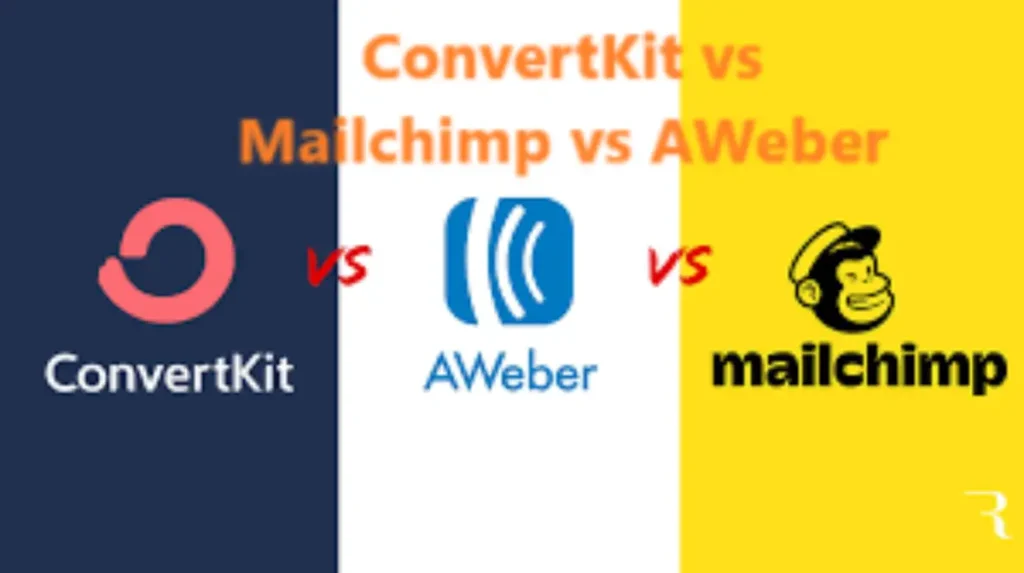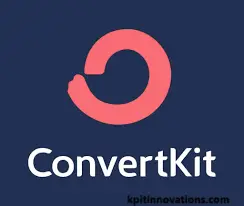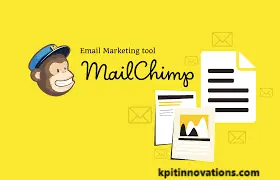
ConvertKit vs Mailchimp vs AWeber: One effective strategy for connecting with and interacting with audiences is email marketing. Choosing the best tool for your purposes is crucial because there are numerous platforms to pick from, each with its own features and costs. Among the most well-liked choices for companies and producers are ConvertKit, Mailchimp, and AWeber. To assist you in making an informed choice, we will compare these tools in several important categories in this blog post.
Why These Three Tools?
Each platform—ConvertKit, Mailchimp, and AWeber—has its own strengths and unique features:
- ConvertKit focuses on creators, providing easy-to-use tools for list building, automation, and content personalization.

- Mailchimp offers advanced features and integrations, ideal for small to large businesses.

- AWeber is ideal for small businesses and emerging brands because it is easy to use and has strong automation options.
Key Features Comparison Table
| Feature | ConvertKit | Mailchimp | AWeber |
| Best For | Creators, bloggers, small businesses | Small to medium businesses, eCommerce | Small businesses, entrepreneurs |
| Free Plan | Yes (up to 300 subscribers) | Yes (up to 500 subscribers) | Yes (up to 500 subscribers) |
| Automation | Advanced (visual workflow) | Basic to Advanced (conditional workflows) | Advanced (drag-and-drop) |
| Templates | Limited (mostly simple templates) | Extensive (hundreds of templates) | Extensive (100+ customizable templates) |
| A/B Testing | Basic (subject line only) | Advanced (content, time, and subject) | Basic (subject line only) |
| Segmentation | Advanced (tag-based) | Advanced (list and tag-based) | Basic to Moderate |
| eCommerce Integration | Limited (focused on digital creators) | Extensive (Shopify, WooCommerce, etc.) | Moderate (Shopify, WooCommerce) |
| Pricing | From $9/month (for paid plans) | From $13/month (for the Essentials plan) | From $20/month |
| Customer Support | Email help for the free plan; chat support for the paid plan | Email and chat support, 24/7 support on premium | 24/7 support via chat and phone |
1. Ease of Use
ConvertKit
ConvertKit was created with creators in mind and is incredibly user-friendly. Because of its user-friendly interface, users with no technical expertise may compose email sequences, manage lists, and set up automation with ease. ConvertKit is a great option if your concentration is on digital products and straightforward email sequences.
Mailchimp
Among the many features of Mailchimp’s extensive dashboard are marketing tools, an audience dashboard, and an email designer. Businesses with a variety of needs might benefit greatly from its flexibility, but new users may find the platform’s abundance of possibilities intimidating.
AWeber
AWeber’s drag-and-drop editor and simple setup make it one of the most user-friendly platforms for novices. Even if its features are strong, they could appear simpler in comparison to ConvertKit and Mailchimp’s sophisticated automation.
2. Email Templates and Design
ConvertKit
ConvertKit offers simple email templates that prioritize content over complex design. This minimalist strategy fits very nicely with content producers seeking straightforward, impactful communications.
Mailchimp
Mailchimp is perfect for users who desire visually beautiful emails because it provides hundreds of pre-designed themes that are extremely customizable. A drag-and-drop builder is available for editing the templates, enabling customization and inventiveness.
AWeber
Like Mailchimp, AWeber offers a large collection of editable templates. Although there aren’t as many design options as Mailchimp, they are nonetheless adaptable enough for a range of sectors.
3. Automation and Segmentation
ConvertKit
ConvertKit excels at creating targeted and pertinent messages based on subscriber activities because to its tag-based segmentation and visual automation approach. For customers who prefer sophisticated segmentation without unduly complicated steps, this feature is perfect.
Mailchimp
With a range of triggers, branching processes, and conditional email delivery, Mailchimp provides robust automation. Although the platform could be too complex for novices, it is appropriate for companies that require thorough customer journey mapping.
AWeber
While AWeber’s basic automation is adequate for drip campaigns, it is not as sophisticated as the processes offered by ConvertKit or Mailchimp. Compared to the more dynamic tag-based segmentation, its segmentation is relatively restricted to list-based segmentation.
4. Pricing
ConvertKit, Mailchimp, and AWeber all offer free plans, which differ significantly in subscriber limits and features.
ConvertKit: up to 300 subscribers for free. Payment-based plans begin at $9 a month.
Mailchimp: Free for up to 500 subscribers. Plans that are paid for start at $13 per month.
AWeber: Free for up to 500 subscribers.Plans that are paid for start at $20 per month.
5. Customer Support
- ConvertKit offers email support on its free plan and live chat support on paid plans.
- Mailchimp provides email support for free users and 24/7 chat support for paid users, with premium support for its higher-tier plans.
- AWeber provides 24/7 support, including phone support, which is rare and valuable for those seeking real-time assistance.
Pros and Cons Summary
| Platform | Pros | Cons |
| ConvertKit | Advanced automation, ideal for creators | Limited design options, minimal templates |
| Mailchimp | Versatile, extensive templates, integrations | Complex interface, cost increases with features |
| AWeber | Easy to use, 24/7 support | Limited advanced automation |
Conclusion
ConvertKit is a great option for creators who prioritize digital goods and straightforward content. For businesses with a variety of demands, Mailchimp is a strong choice because it caters to those that require sophisticated functionality and flexibility. Beginners and small businesses who value user-friendliness and robust customer support will find AWeber to be a great choice.
FAQs about ConvertKit vs Mailchimp vs AWeber
Q1: What is the best email marketing tool for novices?
A1: Because of its user-friendly design and extensive customer care, which includes phone help, AWeber is typically the greatest option for novices.
Q2: Can I use eCommerce with ConvertKit?
A2: ConvertKit is better suited for those who create digital products, even though it offers fewer eCommerce connectors. For all-encompassing eCommerce requirements, Mailchimp is a superior option.
Q3: Are there free plans available on these platforms?
A3: Free plans with restrictions on subscribers and functionality are available from ConvertKit, Mailchimp, and AWeber.
Q4: Which automation features are the finest in this tool?
A4: Mailchimp offers sophisticated, business-useful customer path mapping, whereas ConvertKit delivers sophisticated, user-friendly automation for creators.
Q5: Do these platforms adhere to GDPR?
A5: ConvertKit, Mailchimp, and AWeber are all GDPR compliant and provide tools and resources for handling subscriber data and consent.
Share to Others